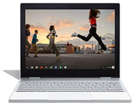Google’s mysterious Fuchsia OS, currently under development, has taken an interesting new turn. Michael Rahman from XDA Developers has uncovered that Google may be looking to bake Android app support into Fuchsia. Google hasn’t publicly revealed much about Fuchsia, or why it exists, but the inclusion of Android app support raises some interesting possibilities about Google's long-rumored unification plans for Android and Chrome OS.
Rahman tweeted:
Fuchsia OS just showed up on AOSP (Android Open Source Project), but most importantly, in the ART (Android Runtime) branch. Looks like they’re building Fuchsia with ART...which would suggest native Android app support.
As Chris Burns from SlashGear suggests, one possibility is that Google could be positioning Fuchsia as an operating system exclusive to the company. Unlike, Android, which is based on Linux kernels, Fuchsia is being built on a new microkernel called Zircon and can run on smartphones, tablets and personal computers. The clues are certainly there. The company has been de-emphasising Android branding in products and services: for example, Android Pay is now Google Pay and Android Wear is now Wear OS by Google.
It’s not to suggest that Android is dead by any stretch of the imagination, even if there is debate about just how much money it generates for Google - after all, it gives it away for free as an open source initiative. However, now that it is building its own smartphones under the Pixel banner, and is also working towards building its own custom silicon, it makes sense for Google have its hardware run a custom operating system — it can’t fully compete with Apple on an equal footing until it does.
However, rather than attempt to rebuild an ecosystem around a new operating system, building in Android app support into something that might be eventually dubbed “Pixel OS,” makes a whole lot of sense. So too does shifting away from doing most of the legwork for Android, which is predominantly benefiting the smartphone sales of Samsung and Huawei. Further, it would make sense for a would be Pixel OS to run on its other Pixel-branded products like the PixelBook, instead of continuing to develop Chrome OS separately as well. In fact, developers can currently give Fuchsia a test run on its PixelBook.
Whichever way you look at it, Fuchsia looks to be shaping up as a key product for Google and one which may start to play a major role in its hardware plans in the near future.





















